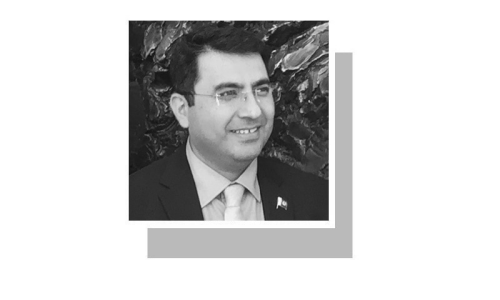
When thousands of Coptic Christians took to the streets in front of the country's ministry of communications and national television building on Sunday, the reality of sectarianism seemed to be unfolding in Egypt, less than three months after the supposed end to decades of tyranny and injustice brought down upon all Egyptians.
The protesters were responding to the violence of the day before, when hardened and radical Salafists – those who adhere to a literal interpretation of the Quran – instigated street battles with Christians at a Cairo church, leaving 12 people dead and hundreds wounded. It was the latest violent outburst between the religious groups in the country.
Anger, resentment and frustration meet both Christians and Muslims on a daily basis in the country. There is much antagonism and mistrust. It is everywhere and anyone who has spent any length of time in the country, understands that the underlying tension has been fomented by the former government of Hosni Mubarak; better to have the people fight instead of the people fight you.
As we gaze upon the events and are continually saddened by the religious-natured violence that seems to erupt in Egypt on a monthly basis, the sad truth is that there are few voices of tolerance and honest discussion in the country that could bring together these two groups, of the same blood and flesh.
Tolerance must win out for Egypt to take that important next step in developing a country that supports, buttresses and praises democracy and inclusion. The stark reality of life on the ground over the past three decades has not yet changed.
Christians in Egypt must still acquire permission from the Egyptian government in order to build a new church, or even remodel an existing building. The discontent often drives much of the sectarian street battles in the country over where Christians can pray. At the same time, however, leading Copts, including political figure George Ishaq, have argued that instead of constantly complaining over the situation at hand, Christians should become part of society.
Unfortunately, language often gets in the way of those voices of reason such as Ishaq. Both sides must take the blame. If they continue to take responsibility for what their words create, then tolerance and hope is a moot point.
Coptic Christians living abroad, many of whom are instrumental in developing public opinion, want little or nothing to do with inclusion and tolerance. Leading that charge are figures like Morris Sadek, the head of the National Coptic Assembly in the United States. He has on a number of occasions argued that Egypt is the national homeland of Copts and Muslims – the vast majority in the country – are an "occupying force." It's not difficult to see where mistrust can be manifested.
Likewise, there are radical conservative Muslim leaders, spouting nonsense against their Christian sisters and brothers from the pulpit. They tell their congregations of the threat the "infidel" has upon Islamic society in Egypt. No wonder Muslims have little desire to know and understand their Christian counterparts.
Too often, putting blame on the other is easy and most often sought. For Egypt, this could have devastating consequences, but as in most modern scenarios and events, there are examples from our history that tell us of another way.
For Egypt, that way could be following the path of Abdul Ghaffar Khan, a Pashtun political leader under British-ruled India who, as Peace Psychologist Daniel M. Mayton II writes, "May well have been the first professional nonviolent army in the history of the world." He helped create what was until modern times a tolerant society nestled in the Swat valley. Obviously, we know how time has changed this fact to the detriment of Pakistani society.
In Egypt, there is still hope. The revolution is far from being complete, but what appears to be the rise of intolerance coupled with violent outbursts, could quickly spiral out of control and into pitched street battles like the one we witnessed in Cairo on Saturday.
In steps Ghaffar Khan's ideology of tolerance and nonviolence. Obviously, nonviolence is not a construct that is foreign to Egyptians – it was the sole reason for their success in bringing down their dictator on February 11 – so it should be readily placed on the table as the entrée.
Just as supporters of Ghaffar Khan swore an oath of nonviolence, even wearing a uniform of "the distinctive brick-red tunic," Egypt needs soldiers of nonviolence in the pursuit of freedom and justice for all its 80 million people.
Tolerance and nonviolence do not need to be passive. And in Egypt's current chaos, it cannot be. It must be in-your-face and deal with the problems facing Egyptian society head on.
There are thousands of young Egyptians who should take up the mantle of nonviolence and tolerance, protest and hold sit-ins that speak to the nation. This army must be direct in its cause and action. They must force their message to be heard and help create the New Egypt that was supposed to begin on February 12. It is the only way to weed out the antagonism amongst both Christian and Muslim. Educate the population on the myriad ways Christians and Muslims are similar. Break down the barriers that have begun to overload in violence.
Similar to how Martin Luther King Jr. in the 1950s and 1960s in the United States talked of one nation for all, including black and white Americans in his liberation ideology, so too must Christians and Muslims in Egypt lead that charge of changing the rhetoric. The reason is simple: if they don't, and the abhorrent and radical language persists, the lies will continue and we will continue to witness a dark future of fragmentation and separation in Egypt.
The writer is an American journalist based in Cairo and is the Editor-in-chief of bikyamasr.com















































Dear visitor, the comments section is undergoing an overhaul and will return soon.